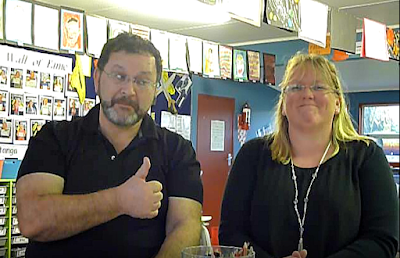Teacher
Reflection
Teacher
reflection is an important part of improving our practice to ensure our students
get the best of what we can give.
I
am very fortunate in the fact reflective
practice at the forefront of our teacher appraisal system in my school and very much "what we do here".
In
our school we all take an active role in implementing positive changes to our
teaching and reflect on our progress (both positive and negative), identifying
successes and new ways forward.
We
regularly critique one another and give honest, meaningful feedback and
feedforward.
We
keep digital diaries to show reflective entries around teaching practice and
leadership.
We
all have a part in our appraisal and take responsibility (with guidance and
support from the principal) for our next goals.
(2014) Retrieved from http://www.arikiproject.ac.nz/concept-map/
Teaching is very much tied in with the Inquiry Process and Ariki is very much about getting us as teachers to Inquire into our practice.
When
I look at Zeichner
and Liston’s (cited in Finlay, 2008,
p.4) five levels of reflection:
1. "Rapid reflection -
immediate, ongoing and automatic action by the teacher.
2. Repair – in which a
thoughtful teacher makes decisions to alter their behaviour in response to
students’ cues.
3. Review – when a teacher
thinks about, discusses or writes about some element of their teaching.
4. Research – when a teacher
engages in more systematic and sustained thinking over time, perhaps by
collecting data or reading research.
5. Retheorizing and
reformulating – the process by which a teacher critically examines their own
practice and theories in the light of academic theories.”
I
realize that our reflective review process “Ariki” covers all 5 levels and is
quite rigorous in getting us to look at ourselves and identifying either by
ourselves, through the process of our reflective journal, or through peer
discussion and in depth questioning, our teaching practice (and leadership)
challenging our thinking positively, and through conversations initiate change
in practice, opinion, and beliefs.
The
Ariki Project (2014) Retrived from http://www.arikiproject.ac.nz/
Finlay, L.
(2009). Reflecting on reflective practice. PBPL. Retrieved from http://www.open.ac.uk/opencetl/files/opencetl/file…
Ministry of
Education.(2009). Teaching as
Inquiry. Retrieved from http://nzcurriculum.tki.org.nz/Curriculum-stories/Case-studies/Teachers-as-learners-Inquiry/Teaching-as-inquiry




Hi Amanda - Some very good points raised through this appraisal process and as you said it covers the five steps as Zeichner and Liston’s described in Finlays 2009 writing on "Reflective on reflective practice", I am wondering what the next steps in this appraisal/ reflective process is? Does it lead to Leadership or can it be used to improve the critical way you think as a teacher and therefore improve your craft knowledge and presentation.
ReplyDeleteCheers Paul
I am actually using the reflective practice model "Ariki" in my role as Team Leader and it works extremely well in that as well. I think the key thing to any self reflection you do is the peer review, which leads to the challenging questions, which in turn makes you stop and think about why you did something, and how it has impacted on your teaching/leadership.
DeleteIs there a next step? Or is it a continual process, I think there really is no end point, there will always be something that needs to be worked on and improved as well as the acknowledgement of the successes.
Thank you for sharing your reflective blog Amanda. I thought about the time each of these five levels of reflection were used/appropriate in your role as a reflective effective teacher."Rapid reflection" occurs when you provide instant feedback to the task according to the learning intentions/goals set with each individual student and in your role as Team leader and peer teacher. The is always a reaction to an action. "Repair" is certainly in direct response to ensure the reaction/behaviour change from your students/peers/team teachers matches the intent, I see you doing this in response to writing within your classroom, and in your co-planning with your team. It ensures clear next steps for your students. When you share and think aloud during "Review" reflection of ariki QLCs this collaborative process supports and challenges your practice. I have seen and shared "research" with you as you further develop your practice. As a teacher you constantly question and seek answers. "Retheorizing and reformulating" fits into your practice with this study, leadership ariki and when reflecting during peer QLCs. Your research and study certainly support this.
ReplyDeleteI have appreciated the opportunity to share your study!
Thank you Audrey for your comments, it is actually a great reflective exercise to take the time and reflect on what our Ariki does. It is good to stop and look back at the Ariki process and see where the 5 levels of reflection fit in. I appreciate your feedback on my reflective process as at time you sometimes wonder if you are examining youself deep enough, but when I look at what you have written I realise that it is a part of what I do on a regular basis. It has become such a part of "what I do" that I forget that it is what it is. I believe I am very lucky with to have the Ariki Reflection process at my school because it has become such an integral part of what I do, that once upon a time I did not reflect or adapt or question my practice or the practice of others with quite the same depth or level, and I see that I am a far better teacher, team leader and person because of it.
ReplyDelete